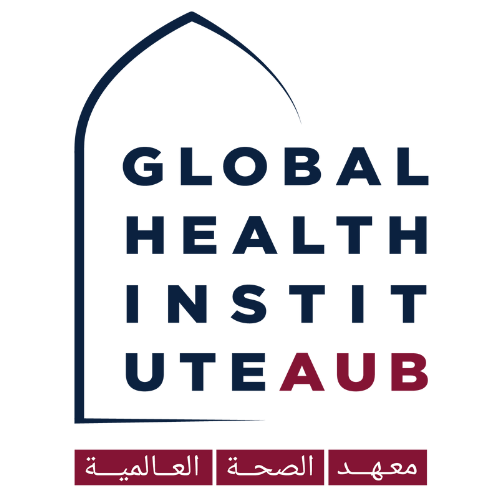

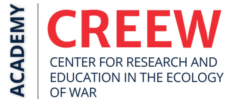
CREEW 2023 Thematic Topic: Cancer in Conflict
Cancer is a leading cause of death in the world. Low- and Middle-Income Countries (LMICs) disproportionately shoulder the devastating effects of cancer. This imbalance is glaringly evident in fragile and conflict-affected settings, which are prevalent in LMICs in the Middle East and North Africa (MENA) region. The chronic and pervasive nature of conflict in the MENA exacerbates the preexisting weak health infrastructure, poverty of data, and insufficient human resources. These barriers are detrimental to the efforts to understand the landscape and effectively counteract the burden of cancer. This iteration of the CREEW fellowship program seeks to strengthen research capacity on cancer, its drivers, and consequences in conflict affected settings through a sustainable model of training and mentorship of local researchers.
The CREEW 2023 Fellowship will build on the experience of its host institution, the American University of Beirut, which houses the Global Health Institute and the Naef K. Basile Cancer Institute (NKBCI). GHI is a regional leader and a key partner in defining and addressing the global health agenda, especially in the MENA region. The NKBCI is a state-of-the-art adult cancer facility providing comprehensive cancer treatment and research. It includes faculty involved in basic science research, clinical research, and teaching.
The 2023 cohort is cosponsored by the Naef K. Bassile Cancer Institute (NKBCI) at the American University of Beirut Medical Center (AUBMC) with a thematic topic focused on “Cancer in Conflict”.
CREEW 2023 Fellowship Structure
The CREEW 2023 Fellowship adopts an online learning modality to train practitioners working in conflict-affected settings to conduct research on cancer. It is structured in an accelerated format that spans 12 months and includes three phases: Didactic Phase, Field-based Mentored Research Phase, and Research Dissemination Phase.

Didactic Phase (10 weeks)
Online Certificate in Conflict Medicine : The online certificate in conflict medicine (CCM) has been developed by GHI in collaboration with King’s College in London. This certificate includes 4 courses: Introduction to Conflict Medicine, Medical Care and Knowledge in Conflict, Health Research Methods in Conflict, and Cancer in Conflict. These courses aim to provide an operational and conceptual understanding of how medical care and research can be shaped and undertaken in settings of conflict and fragility. The cancer in conflict course brings forth the required knowledge for conducting cancer research in conflict settings including research methods and the ethical principles governing cancer research in conflict settings. The course also touches on the enablers and challenges around cancer control and cancer registration in settings of conflict.
Online Training Workshops: The online training workshops will constitute a series of workshops over 6 weeks that aim to transform the fellows’ research proposals into mature, applicable, contextualized, and ethical research projects. The workshops will also touch on Responsible Conduct of Research, Research Dissemination, PowerPoint Presentation, and Manuscript Writing.
Mentor Matching: During the didactic phase, each fellow will be matched with a mentor from AUB or other regional or global partner organizations. Mentors will oversee the development of the detailed research plan during the online workshops.

Field-based Mentored Research Phase (up to 32 weeks)
Fellows will then start the research implementation phase, where they will implement the research plan in their home country. The fellow and the mentor will meet regularly using online conferencing tools.

Research Dissemination Phase (up to 8 weeks)
Upon finalizing the mentored research phase, the fellows, in coordination with the mentors and CREEW administration, will submit a scholarly output(s), in addition to the CREEW final report. The scholarly output(s) can be a manuscript (original research article or a review article) or an abstract submission to a conference.
CREEW 2023 Fellowship Certification
Upon successful completion of the three phases, the CREEW fellows will receive two certificates:

Online Certificate in Conflict Medicine (Optional)
Issued by GHI

CREEW 2023 Certificate of Completion
Issued by GHI and NKBCI.
CREEW 2023 Scientific Advisory Committee
Prof. Ali Taher
Naef K. Basile Cancer Institute, Lebanon
Dr. Ghassan Abu Sittah
Global Health Institute (GHI), American University of Beirut (AUB), Lebanon
Dr. Christos Giannou
Queen Mary & Barts, University of London
Dr. Deborah Mkherji
Clemenceau Medical Center, Dubai
Dr. Hikmat Abdel-Razeq
King Hussein Cancer Center, Jordan
Dr. Ibtihal Fadhil
WHO Regional Office for the Eastern Mediterranean
Prof. Richard Sullivan
King’s College London, London
Dr. Zahi Abdul Sater
Global Health Institute (GHI), American University of Beirut (AUB), Lebanon
CREEW 2023 Fellowship Tuition

TUITION FEES:
$4500

SCHOLARSHIP
This will include costs of Online Certificate in Conflict Medicine, online training workshops, and mentorship fees.
Scholarship will be offered for a limited number of fellows. The scholarship will cover costs of Online Certificate in Conflict Medicine, online training workshops, mentorship fees, and research costs.
CREEW 2023 Fellows
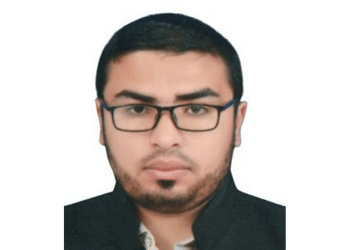
Mr. Haytham Abusenjar
Palestine
Profile
Mr. Abusenjar holds a BS in Nursing. He is an Oncology nurse and a writer who covers stories of people's sufferings in Gaza, in particular cancer patients.
Project Title
Exploring the Perceptions of Oncology Healthcare Professionals on Introducing Home-based Palliative Care (HBPC) for Patients with Advanced Cancer in Gaza – A Qualitative Study
Read More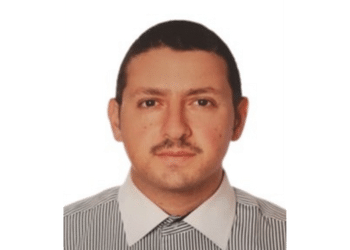
Dr. Mohammad El Azhari
Jordan
Profile
Dr. El Azhari holds an MSc in and BS in Medicine. He is a community medicine specialist and works at the National Cancer Registry at the Jordanian Ministry of Health.
Project Title
Burden of Cancer Among Patients Coming from Conflict Areas in Jordan Between 2016 and 2019
Read More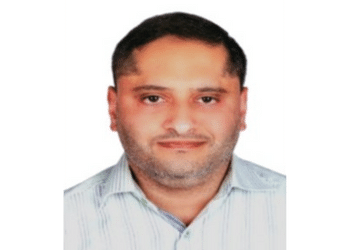
Dr. Mohammed Dabbourassaad
Palestine
Profile
Dr. Dabbourassaad holds a BS in Medicine with a specialization in Oncopathology and Hematopathology. He is a full-time pathology lecturer and head of the preclinical department in the Faculty of Medicine at the Islamic University of Gaza.
Project Title
Barriers to Effective Endometrial Cancer Diagnosis and Management in the Gaza Strip: A Qualitative Study
Read More

